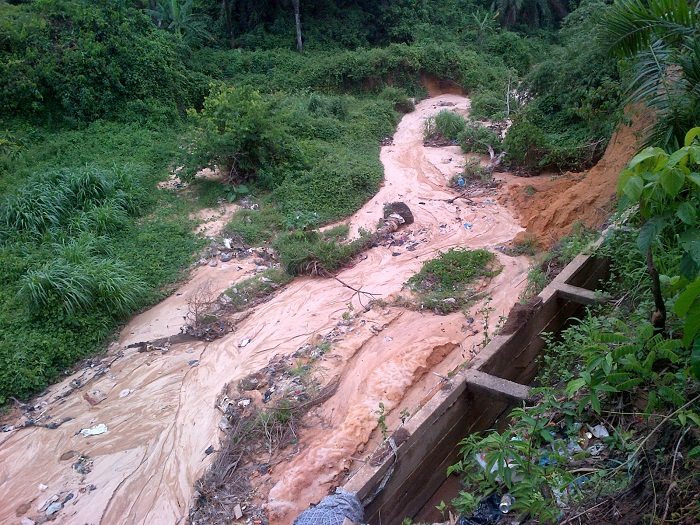The World Bank has committed about US$20m towards the gully erosion control in Nigeria. Five different sites have already been identified in Calabar, Cross River State to have frequently experienced the natural erosion disaster.
However, the funds will be made available via the River State -Nigeria Erosion and Watershed Management Project (CRS-NEWMAP). According to Fidelis Anukwa, the CRS-NEWMAP Coordinator, the project aims at controlling the gully erosion which has greatly destroyed parts of Calabar. In fact, four of the five selected sites have undergone inspection by the stakeholders. This includes, the Atakpa, Edim Otop and Ikot Ekpo.
Mr. Anukwa further explained that the US20m has been committed to cater only for the civil works for the five gully erosion sites. He also gave each project site allocated fund that is US$3.3m for Atakpa gully site, US$2.72m for Edim Otop gully site, US$4.27m for Ikot Ekpo gully site, US$2.04m for Nyagasang gully erosion site and US$ 7.5m for Ikot Anwatim gully erosion site.
Furthermore, the design for the project have passed the internationally accepted standards given that series of vetting were done before the projects were approved by the World Bank along with its intervention partners.
Being a high rainfall state, the work at the project sites will mainly depend on the weather where the construction work can be executed with no rain interruption, this covers only four months in a year without rainfall in the region.
The first phase of the project is expected to be completed by 2020. The second phase is also expected to commence once the first has been successfully been executed. The cause of frequent gully erosions in Calabar state has been attributed to refuse disposal and refuse mismanagement within the state. However, the state government has plans of establishing and implements a sanitation court for the trial and possible conviction of those who violate the environment with the goal of reducing the dumping culture in the state if not completely wipe out the challenge.

Leave a Reply